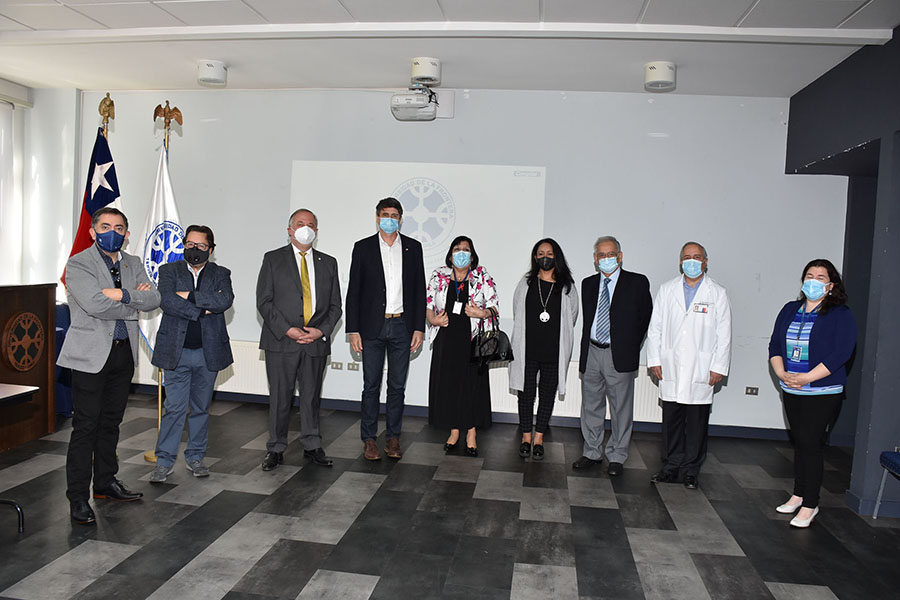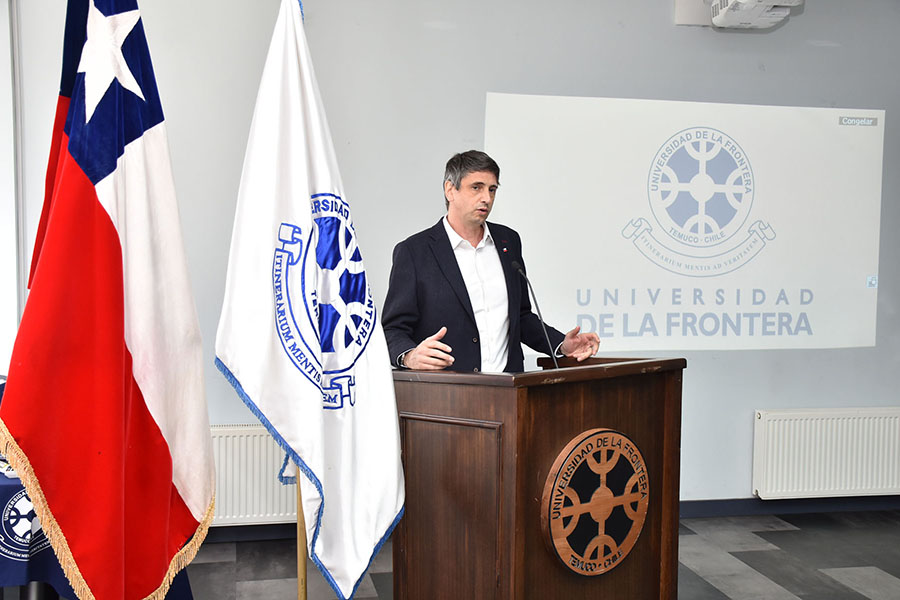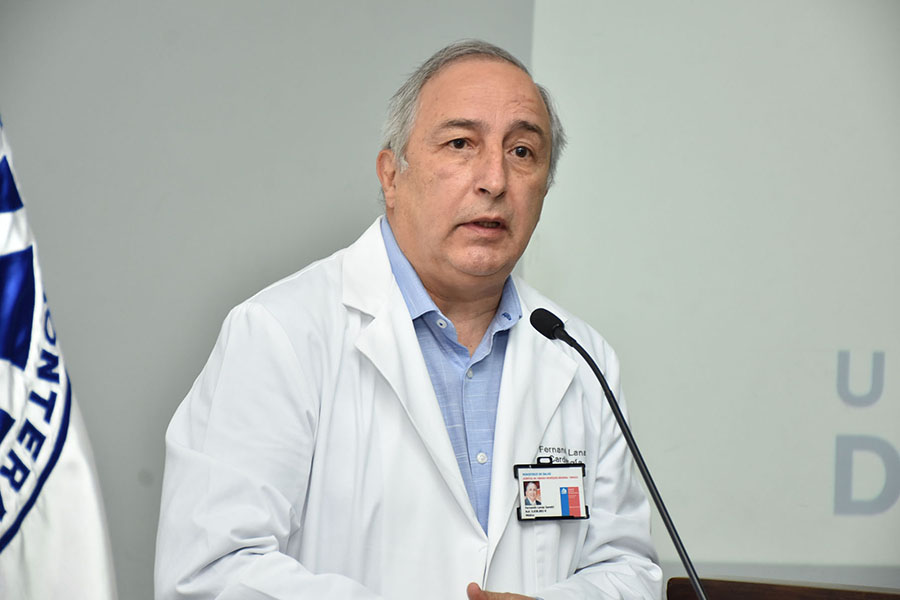|
The Minister Andrés Couve met with the university authorities and researchers who are leading the clinical trial for CanSino Biologics’ Covid-19 vaccine. |
“This clinical trial for a vaccine is one more example that it is possible to work on scientific discoveries for Chile and the world on the regional level in a rather centralized country such as Chile,” Andrés Couve, the Chilean Minister of Science, Technology, Knowledge and Innovation, pointed out during his visit at the university Universidad de La Frontera (UFRO), which is the only institution in phase III of the clinical trial for CanSino Biologics’ Covid-19 vaccine. The purpose of this meeting was to get to know the details of this clinical trial. Therefore, the Minister Andrés Couve met with authorities of UFRO and the regional government, with the academic staff that coordinates the study and with volunteers who have decided to be part of it. Some of the attendees were the Rector, Dr. Eduardo Hebel; the regional Health Minister, Dr. Gloria Rodríguez; the Vice-rector of Research and Graduate Studies, Dr. César Arriagada; the Dean of the Faculty of Medicine, Dr. Wilfried Diener; the Research Director, Dr. Pamela Serón; and Dr. Fernando Lanas, the researcher who is leading this study together with Dr. Sergio Muñoz, both of UFROs Faculty of Medicine. According to Dr. Eduardo Hebel, because of the impact of this pandemic, the whole world is watching and waiting for the results of these clinical trials for a vaccine that will help to protect the world population. In this context, he stressed that “we are very proud that our university in the south of Chile has been chosen to lead this study, which can benefit people in the whole world. This certainly is a recognition of our scientific work”. In this context, the Minister pointed out that “the regional institutions offer different opportunities and we have to combine all advantages in order to create the best service for our country, and we believe that regional research should be developed with this in mind”. He also explained that after the approval by the regulatory authorities, “these vaccines will meet the highest safety and efficacy criteria, so that the people do not have to worry. We need to be vaccinated as a society. Immunization is not an individual issue, we all have to play our part in the fight against this virus and to protect each other”. Dr. Fernando Lanas also stressed the fact that Chile is part of these major global studies and that a Chilean regional university is coordinating one of them. “This is a tremendous contribution in terms of our research capabilities and our scientific output. This is the only study led by a regional university, and a challenge and source of pride for us,” he said. The researcher explained that this vaccine uses an adenovirus that cannot replicate and that carries the coronavirus protein on its surface. The results of phase I and II have already been published and show that it is a safe vaccine, with a good immune response, and now it’s time for the international clinical trials, with more than 40 thousand participants from China, Canada, Russia, Mexico, Argentina and Chile. Chile started the process, which will take about a month a half, with 5200 volunteers from different cities like Santiago, Talcahuano, Valdivia, Osorno, Temuco and Puerto Montt. In Temuco, most of them are health professionals, with about 1400 doses being administered. One of them is Denissa Klagges, a speech therapist and epidemiologist, who explained that “my motivation for participating in this clinical trial is that I work at a clinic, where I deal with patients with Covid-19 sequels, who are having difficulties to speak, communicate and swallow”. Written by: Karimme Riadi Millas
Vice-rectorate for Research and Graduate Studies |


